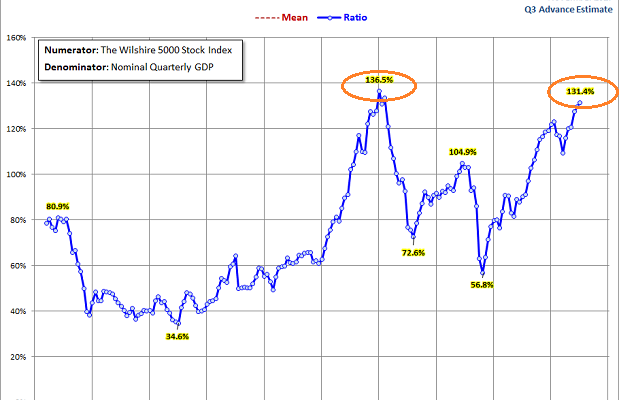When I co-hosted a national talk radio show in 2000, tech stock inquiries came furious and fast. JDSU or Sun Micro? Powerwave or Cisco? Webvan or theGlobe.com?
Few expressed concern about a recession. Few wondered if they might lose money by investing in the New Economy’s Internet favorites. Even fewer callers believed that they might want to take less risk rather than more.
Granted, tech stocks may not be as wildly overvalued as they were in 2000. That said, the U.S. stock market as a whole is beginning to look a lot like it did in previous bubbles.

Speculative excess is certainly not confined to the equity arena. Consider the crypto craze. Bitcoin began the year at roughly $950. At last check, it chimed in at $10,950. Wait, $10,600. Hold on, $11,200.
“You don’t understand cryptocurrency potential,†supporters tell me. “Bitcoin and blockchain technology must be viewed through a different prism entirely.†Really?

Real estate prices in a number of major metro areas are getting way ahead of themselves as well. The 3.75%-4% 30-year fixed here in the 2010s may justify higher home prices than previous decades, since homebuyers are essentially buying a monthly payment. But how much more? Portland, Dallas, Denver, Seattle and San Francisco Bay Area homes all carry price tags that are 20%-45% higher than they were during the housing bubble peak in 2007.
Keep in mind, the incredibly easy access to 5.75%-6% mortgages in the mid-2000s was a major component in 2007’s housing bubble and eventual bursting. With existing home sales turning negative on a year-over-year basis, here in 2017 and the masses expressing little worry about their property values, might one be wise to approach the asset class with a bit of caution going forward?

Perhaps mortgage obligations and the overall expenses associated with homeownership are less onerous than they were in 2007. On the flip side, households are saddled with more debt than ever. Should asset prices from stocks to real estate depreciate in the future (and they will), those entrenched obligations would weigh heavily.

